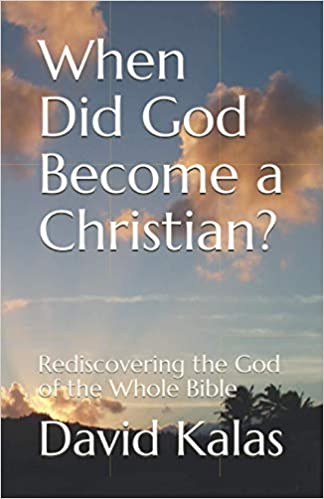Week Sixteen Reading Assignment:
1 Chronicles 8 - 2 Chronicles 1
"When we speak of the canon of scripture, the word 'canon' has a simple meaning. It means the list of books contained in scripture, the list of books recognized as worthy to be included in the sacred writings of a worshiping community...
"The word 'canon' has come into our language (through Latin) from the Greek word kanon. In Greek it meant a rod, especially a straight rod used as a rule; from this usage comes the other meaning which the word commonly bears in English -- 'rule' or 'standard.'...
"Before the word 'canon' came to be used in the sense of 'list,' it was used in another sense by the church -- in the phrase 'the rule of faith' or 'the rule of truth.'...
"The 'canon' of scripture is understood to be the list of books which are acknowledged to be, in a unique sense, the rule of belief and practice."
(F.F. Bruce, The Canon of Scripture)
"The word 'canon' has come into our language (through Latin) from the Greek word kanon. In Greek it meant a rod, especially a straight rod used as a rule; from this usage comes the other meaning which the word commonly bears in English -- 'rule' or 'standard.'...
"Before the word 'canon' came to be used in the sense of 'list,' it was used in another sense by the church -- in the phrase 'the rule of faith' or 'the rule of truth.'...
"The 'canon' of scripture is understood to be the list of books which are acknowledged to be, in a unique sense, the rule of belief and practice."
(F.F. Bruce, The Canon of Scripture)
This Week's Teaching Video: Time Lapse Monarchy
|
The video above endeavors to provide a brief and graphic depiction of the history we read in the books of Samuel, Kings, and Chronicles.
The era of the "united monarchy" is straightforward enough: three consecutive kings ruling over all twelve tribes of Israel -- Saul, David, and then Solomon. After Solomon's son, Rehoboam, takes the throne, however, the nation divides into two kingdoms, and we find ourselves tracing two sets of kings at the same time. |
The scrolling names of the kings of Israel and Judah is meant to reflect the length and coincidence of their reigns.
Scholars debate the exact dates of certain kings, and the biblical record is not always entirely clear. Different resources might depict the years and reigns somewhat differently than what you will see here. The dates employed in this video represent the chronology published by the American Bible Society in the Good News Bible (c) 1976. |
Good Book Review:
|
An Unexpected StarIt's easy to look back at any period of biblical history and identify the men and women who were the stars of the show. We think of Abraham or Joseph; of Moses or Joshua. The era of the Judges brings to mind Deborah, Gideon, and Samson. Then we come to notables like Samuel and David. And even the mostly troubled period of the divided monarchy has its stars: Asa, Jehoshaphat, Elijah, Elisha, Hezekiah, and Josiah among them.
Now the Chronicler takes us back and invites us to review the earlier centuries of Old Testament history about which we had already read. But as he retells the story, a new star emerges. It is perhaps an unlikely leading character in the story inasmuch as it is not a person. It is the Temple in Jerusalem. The Chronicler's contemporaries are a generation that seeks to reestablish life back in Judah and Jerusalem after the era of the Babylonian exile. And a critical part of that process -- as we will see evidence of in the later books of Ezra, Haggai, and Zechariah -- is the Temple. Solomon's Temple had been destroyed by the Babylonians. The post-exilic Jews, therefore, needed to rebuild certain structures -- first, the physical structure of the Temple; then, the organizational structure of the priests and Levites with their roles and rituals; and, most importantly, the spiritual structure of the people of God. To that end, when the Chronicler recalls the story of Judah's earlier (pre-exilic) history, he is especially careful to track the Temple in that story. The prepara-tions for it, the construction of it, and the organization of it are all recorded. Also, the writer is attentive to what happens to the Temple -- both good and bad -- through the era of the divided monarchy. And, in the end, even the very return of the Jews to their homeland after the exile is intimately tied to the Temple: "This is the command of Cyrus, Emperor of Persia. The Lord, the God of heaven, has made me ruler over the whole world and has given me the responsibility of building a temple for him in Jerusalem in Judah. Now, all of you who are God's people, go there, and may the Lord your God be with you" (the final verse of the Chronicles -- 2 Chronicles 36:23 TEV). |
Is My Name Written There
|
